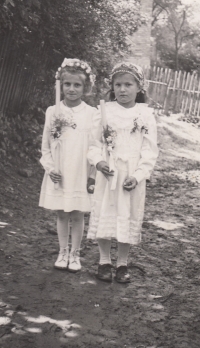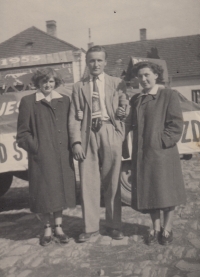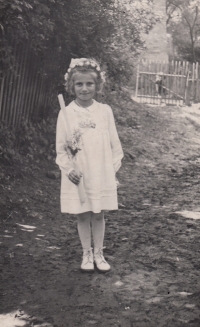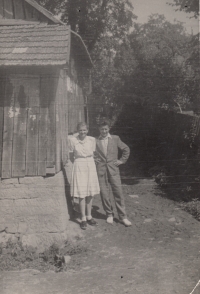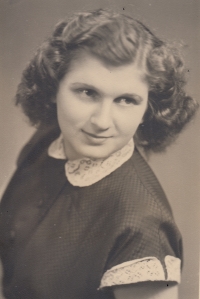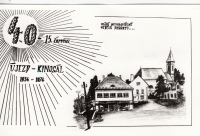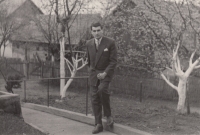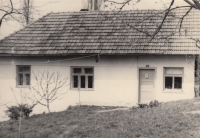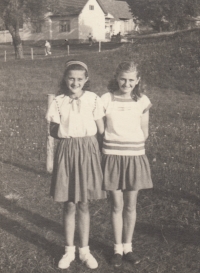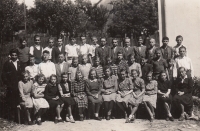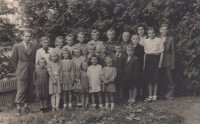We could tell the identity of the dead from Ploština by their scorched clothes

Download image
Vlasta Častová, née Zahradníková, was born on December 30, 1934, in Valašské Klobouky to the family of the bricklayer Josef Zahradník and his wife Františka. Vlasta’s father was doing forced labour in German Leipzig during the war. Despite the war taking six long years, Vlasta did not set eyes on a German soldier until April 1945, when the Nazis had gone on the rampage against those who had been helping the freedom fighters. On April 19, her brothers witnessed the knife-grinder Ladislav Rangl’s family’s murder. The Nazis executed them for no reason. Then they continued to the hamlet of Ploština, which they burnt down, leaving twenty-four people to burn to death in their houses. Vlasta along with other children and inhabitants of Újezd were watching Ploština burn and explode from the top of a nearby hill. After the war, the Zahradníks moved to Javoří u Mírova where they tried their hand at farming at a formerly Sudeten-German homestead. However, two years later they returned to Újezd as they did not have enough experience with running a farm of the size of Javoří. Vlasta’s brother Bedřich Zahradník was arrested by State Security in 1949, held prisoner and tortured at the Uherské Hradiště prison. On finishing primary school, Vlasta started working at the new arms factory in Slavičín. She got the job because she had withheld the information that her brother was a political prisoner. Nevertheless, the information leaked years later and Vlasta was assigned an agent provocateur by State Security who was trying to persuade her to flee to Austria. To avoid this, Vlasta Častová transferred to the rubber factory in Gottwaldov, where she was working for the next forty years. In 1960, she married Josef Časta and they had two children, Hanka and Dušan. At the time of the interview, she was living in Zlín.
